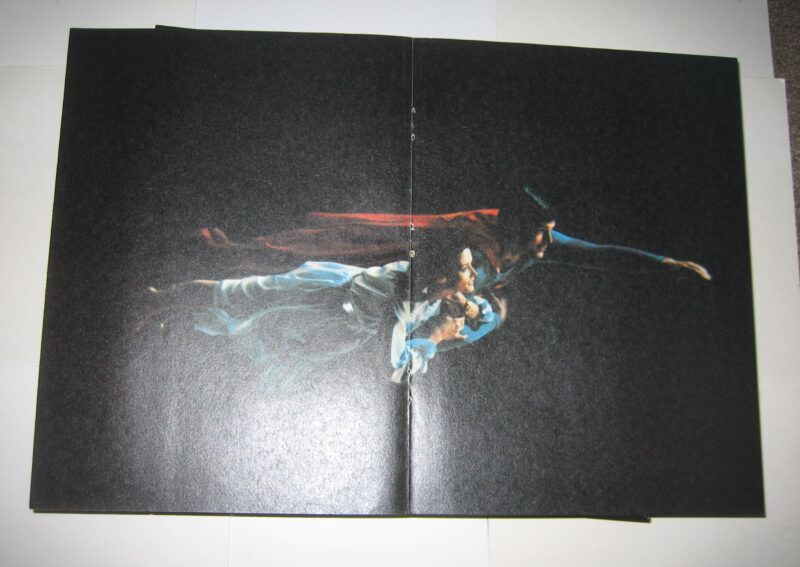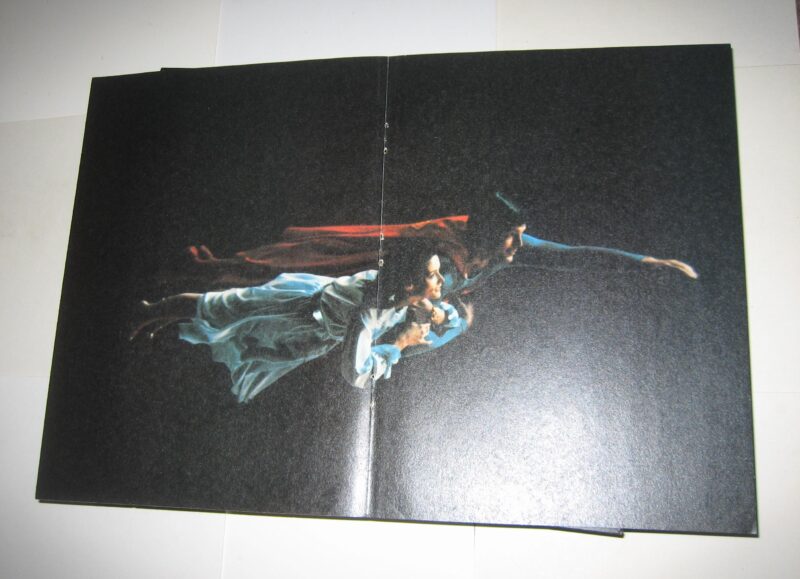Description
Queue John Williams’ Love Theme from the Superman Soundtrack! Margot Kidder as Lois Lane: A reporter at the Daily Planet, who becomes a romantic interest to Clark Kent. Over 100 actresses were considered for the role. Christopher Reeve as Clark Kent / Superman: Born on Krypton as Kal-El and raised on Earth, Superman is a being of immense power, strength and invulnerability who after realizing his destiny to serve mankind uses his powers to protect and save others. As a means to protect his identity, he works in Metropolis at the Daily Planet as mild-mannered newspaper reporter Clark Kent. Reeve was picked from over 200 actors who auditioned for the role. Superman (also known as Superman: The Movie) is a 1978 superhero film directed by Richard Donner. It is based on the DC Comics character of the same name and stars Marlon Brando, Gene Hackman, Christopher Reeve, Margot Kidder, Glenn Ford, Phyllis Thaxter, Jackie Cooper, Trevor Howard, Marc McClure, Terrence Stamp, Valerie Perrine and Ned Beatty. The film depicts Superman’s origin, including his infancy as Kal-El of Krypton and his youthful years in the rural town of Smallville. Disguised as reporter Clark Kent, he adopts a mild-mannered disposition in Metropolis and develops a romance with Lois Lane, while battling the villainous Lex Luthor. It was decided to film both Superman and Superman II simultaneously, with principal photography beginning in March 1977 and ending in October 1978. Tensions rose between Donner and the producers, and a decision was made to stop filming the sequel—of which 75 per cent had already been completed—and finish the first film. Ultimately costing $55 million, Superman was released in December, 1978, to critical acclaim and financial success, earning $300 million during its original theatrical run. Reviewers noted parallels between the film’s depiction of Superman and Jesus and particularly praised Reeve’s performance. It was nominated for three Academy Awards including Best Film Editing, Best Music (Original Score), and Best Sound Mixing, and received a Special Achievement Academy Award for Visual Effects. Groundbreaking in its use of special effects and science fiction/fantasy storytelling, the film’s legacy presaged the mainstream popularity of Hollywood’s superhero film franchises. It was initially decided to first sign an A-list actor for Superman before Richard Donner was hired as director. Robert Redford was offered a large sum, but felt he was too famous. Burt Reynolds also turned down the role, while Sylvester Stallone was interested, but nothing ever came of it. Paul Newman was offered his choice of roles as Superman, Lex Luthor or Jor-El for $4 million, turning down all three roles. When it was next decided to cast an unknown actor, casting director Lynn Stalmaster first suggested Christopher Reeve, but Donner and the producers felt he was too young and skinny. Over 200 unknown actors auditioned for Superman. Olympic champion Bruce Jenner had auditioned for the title role, while Patrick Wayne was cast, but dropped out when his father was diagnosed with stomach cancer, from which he died months after the film’s 1978 release. Both Neil Diamond and Arnold Schwarzenegger lobbied hard for the role, but were ignored. James Caan, James Brolin, Lyle Waggoner, Christopher Walken, Nick Nolte, Jon Voight, and Perry King were approached. Kris Kristofferson and Charles Bronson were also considered for the title role. James Caan said he was offered the part but turned it down. “I just couldn’t wear that suit.” Stalmaster convinced Donner and Ilya to have Reeve screen test in February 1977. Reeve stunned the director and producers, but he was told to wear a “muscle suit” to produce the desired muscular physique. Reeve refused, undertaking a strict physical exercise regime headed by David Prowse. Prowse had wanted to portray Superman, but was denied an audition by the filmmakers because he was not American. Reeve was paid a mere $250,000 for both Superman and Superman II while his veteran co-stars received huge sums of money: $3.7 million for Brando and $2 million for Hackman for Superman I. The first test for the flying sequences involved simply catapulting a crash test dummy out of a cannon. Another technique had a remote control cast of Superman flying around. Both were discarded due to lack of movement. High quality, realistic-looking animation was tried, with speed trails added to make the effect more convincing. As detailed in the Superman: The Movie DVD special effects documentary ‘The Magic Behind The Cape’, presented by optical effects supervisor Roy Field, in the end, three techniques were used to achieve the flying effects. For landings and take-offs, wire flying riggings were devised and used. On location, these were suspended from tower cranes, whereas in the studio elaborate rigs were suspended from the studio ceilings. Some of the wire-flying work was quite audacious considering computer controlled rigs were not then available — the penultimate shot where Superman flies out of the prison yard for example. Although stuntmen were used, Reeve did much of the work himself, and was suspended as high as 50 ft in the air. Counterweights and pulleys were typically used to achieve flying movement rather than electronic or motorized devices. For shots where the camera is stationary and Superman is seen flying towards or away from the camera in the frame, blue screen matte shots were used. Reeve would be photographed against a blue screen. While a special device made his cape flap to give the illusion of movement, the actor himself would remain stationary. Instead, the camera would use a mixture of long zoom-ins and zoom-outs to cause him to become larger or smaller in the frame. The blue background would then be photochemically removed and Reeve’s isolated image would then be ‘inserted’ in to a matted area of a background plate shot. The zoom-ins or zoom-outs would give the appearance of flying away or towards the contents of the background plate. The disparity in lighting and colour between the matted image and the background plate, the occasional presence of black matte lines (where the matte area and the matted image — in the case Superman — don’t exactly match-up) and the slightly unconvincing impression of movement achieved through the use of long zoom lenses is characteristic of these shots. For shots where the camera is tracking with Superman as he flies (such as in the Superman and Lois Metropolis flying sequence) front projection was used. This involved photographing the actors suspended in front of a background image dimly projected from the front on to a special screen made by 3M that would reflect light back at many times the original intensity directly in to a combined camera/projector. The result was a very clear and intense photographic reproduction of both the actors and the background plate with far less of the image deterioration or lighting problems than occur with rear projection. A technique was developed that combined the front projection effect with specially designed zoom lenses. The illusion of movement was created by zooming in on Reeve while making the front projected image appear to recede. For scenes where Superman interacts with other people or objects while in flight, Reeve and actors were put in a variety of rigging equipment with careful lighting and photography. This also led to the creation of the Zoptic system.
Frame is shrinkwrapped until time of purchase. Ships boxed with packing peanuts.
THE PERFECT GIFT!
Related products
-

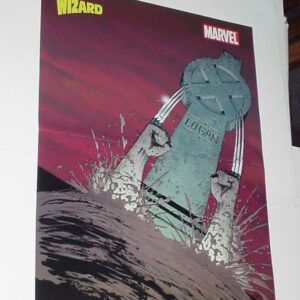
Wolverine Poster #13 Lives! by John Cassaday X-Men
$34.99 Add to cart -
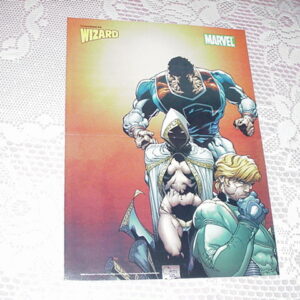
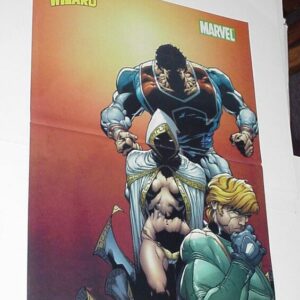
Supreme Power Poster # 1 Joe Quesada Hyperion Doctor Spectrum Squadron
$29.99 Add to cart -
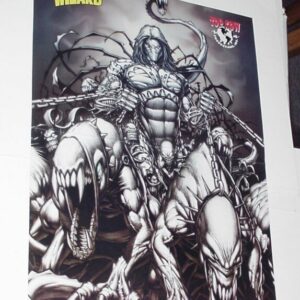
Darkness Poster # 4 Dale Keown Darklings in Chains Pitt Hulk
$29.99 Add to cart -
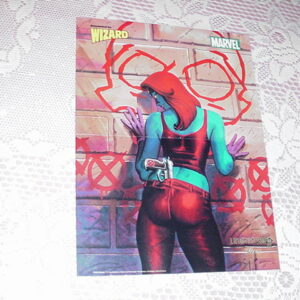
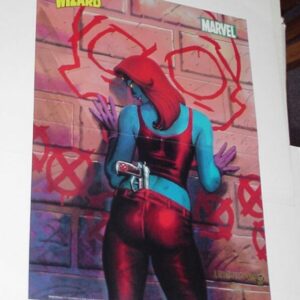
X-Men Poster #36 Mystique Joseph Michael Linsner Dawn
$34.99 Add to cart
